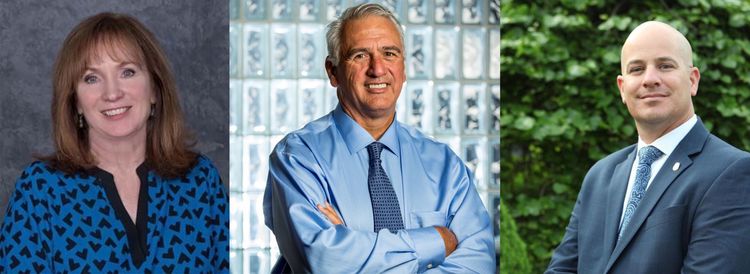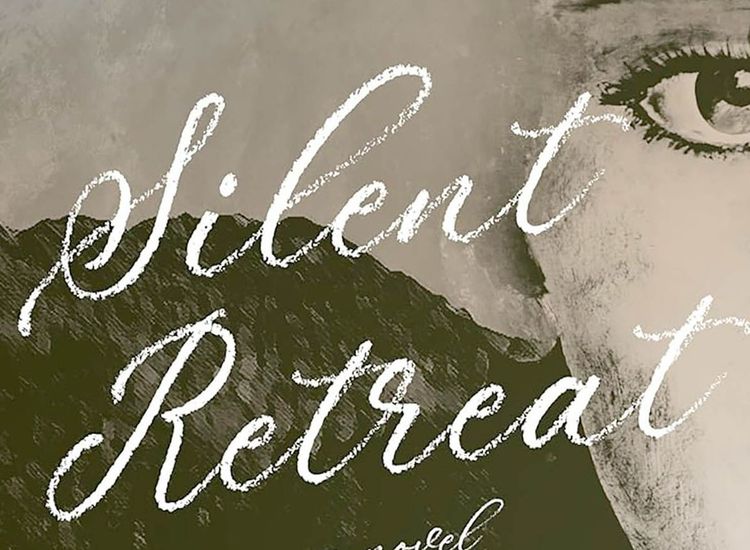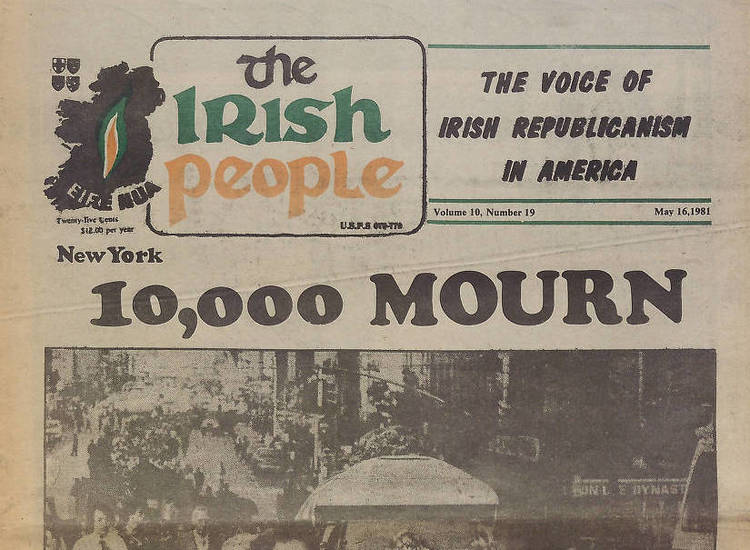Maeve Higgins, the author of "Maeve in America."
PHOTO BY JEANNIE O’BRIEN
Page Turner / Edited by Peter McDermott
A few years ago during an Artists Without Walls showcase at Manhattan’s Cell Theatre, Maeve Higgins told of her experiences “swimming against dolphins” in the Pacific Ocean. She brought the house down. That same material forms the terrific opening essay to “Maeve in America,” showing her to be one of those rare spoken-word comic artists whose work can make an easy transition to the page.
Higgins explained to this paper the premise of the collection: “At the grand old age of 31, I left the only home I’d ever known in search of something more. ‘Maeve in America’ is the story of how I found myself, literally and figuratively, in New York City. Here are stories of immigration, of not being able to afford a dress for the ball, of learning to live with yourself while you’re still figuring out how to love yourself, of the true significance of realizing what sort of shelter dog you would be. I tried to be both self-aware and laugh-out-loud funny!”
She is both, but maybe she’s messing with our heads by beginning a book entitled “Maeve in America” with the story of those dolphins, who were in fact in New Zealand’s waters and likely still are, some of them. Or perhaps that traumatic episode is meant to throw the rest into sharp relief: life in New York, all things considered, has gone swimmingly well.
Her career has been flourishing in the few years since she’s been in the city, and now her book has won endorsements like this one-liner from Glamour magazine: “If Tina Fey and David Sedaris had a daughter, she would be Maeve Higgins.”
The author herself has had some comic fun reflecting on the improbability of that in the literal sense. But there’s something to it. As in the case of “dad” Sedaris, we can see how an autobiographical monologue can double as literature. But Higgins doesn’t have the cynical edge of the male performers who’ve excelled in this way and that’s where “mom” Fey’s kinder genes come into play.
She’s not afraid, however, to take on some of the big issues, such as white privilege, immigration and our society’s many inequalities generally. A lot of the time, though, the author observes the world via the obsessions she shares with her fellow Brooklyn millennials. And that’s why Amy Schumer can say: “Maeve Higgins is hilarious. She is the true Irish voice of our American generation.”
Of course, she’s also the “girl from somewhere else” of the book’s subtitle.
There’s that given name for one thing.
“I always wished for a flower name, like my sisters.” Lily, Rosie and Daisy are three of the six. “Then there’s me. Maeve. I don’t sound like a flower, I sound like a boulder. Or maybe a tree, a dead tree. ‘The great forest of Maeves was decimated by an outbreak of sooty mold in the 18th century and never quite recovered.’”
She continues: “Maeve also sounds like mauve, the color, and I don’t like mauve. Mauve is the color of a depressed lilac. The only place I would voluntarily wear mauve would be my son’s wedding to a woman I didn’t much like. I would be that passive-aggressive mauve blob in all the photographs, my unsmiling face peeping out from the off-lavender hat, letting everybody know how I feel about this debacle, about how my poor boy deserved better.”
Higgins suspects that names can determine personality and perhaps she was infected with the “kooky virus” the moment her parents named her.
“Strangely, there is a 9-year-old Maeve living in the apartment over mine, and she seems, if not kooky, then downright naughty.” This is not a “sweet little coincidence; rather it feels like a small punishment for an unknown transgression against the Universe. It’s happening right now; upstairs Maeve has upset her sister and is being yelled at by their mother. 'Maeve, why do you always have do that?’ At this point in my life, the disembodied voice of a critical mother is unhelpful.”
Working from home, the writer must “maintain some belief that I’m doing a normal thing, and not a madwoman who is alone most of the time. That delicate equilibrium is often rocked by sudden screams of ‘Maeve – what have you done now? Say sorry to everyone!’”
Higgins does have a couple of dead Maeves to look up to – one of them, she says, is probably the most famous person with the name. Novelist Maeve Binchy wrote “great dialogue that never felt unnatural to read” and she herself “seemed wise and kind and determined to have fun, and her books all have happy endings.” Then there’s Maeve Brennan, who drew a map of the city decades ago in her “Long-Winded Lady” column in the New Yorker that “is a friend and a guide to me now.”
Those two Dubliners have been joined by the woman from the south coast, and soon enough, perhaps, people will be thinking in terms of the triumvirate of literary Maeves.

Maeve Higgins
Place of birth: Cork
Residence: Brooklyn
Published works: “Maeve in America,” contributing writer to the New York Times, columnist with the Progressive. Co-host of the climate-justice podcast “Mothers of Invention” with former Irish President Mary Robinson, Host of the immigration podcast “Maeve in America.”
What is your writing routine? Are there ideal conditions?
I like to write in my office with my dog asleep on the ground. This rarely happens, because I travel a lot for work, so I’m sadly not home a lot. When I am, my dog is usually awake and staring at me. I used to force myself to write first thing, and have quite a strict regimen that involved timers and word counts. Now, I’m less disciplined and I think my writing is better. However, this lack of routine is stressful. Some days, when my anxiety is high, I need to wait until I’m really tired in order to write, because my brain is less jumpy then. I also listen to music in headphones while I write because that seems to skim off a few layers of thought and let me access whatever is underneath.
What advice do you have for aspiring writers?
Write when you can, don’t be too critical of yourself. If you’re shy or have low confidence or perfectionist tendencies, then write as fast as you can and do not edit as you go. Just get it onto the page and you’ll be fine.
What book are you currently reading?
Abdi Iftin’s “Call me American” is an incredible true story of a boy living in war-torn Somalia who escapes to America – first by way of the movies; years later, through a miraculous green card. Like many refugee stories, Iftin’s is a modern day adventure story, dreadful to live through but extraordinarily compelling to witness. Iftin scrapes through wars and famines and past corrupt officials and has a few lucky breaks along the way. His is an important voice, and this book is elegantly written and extremely timely.
Is there a book you wish you had written?
The Bible, and I’d keep the film rights too. I’d write more strong female leads and have less Old Testament shame around stuff that’s totally normal and fun like oysters and gay sex. I’d also do a pop-up feature for when Jesus comes back to life.
Name a book that you were pleasantly surprised by.
“Dubliners.” I resisted reading Joyce because I despise the messianic status he’s been given by the largely male Irish literary set through the years. Sadly, worshipping him and the canon of Irish male writers has cost us a lot. Women and minority writers in Ireland still have to fight to be heard and read and published, let alone recognized at the great writers they often are. That said, I absolutely love these short stories. The man is a genius! Some of the images; the kooky old sisters, the woman drunk on the bed reminiscing about her ex, the child’s fury at missing the carnival, those are frozen in my mind and I hope they never leave.









